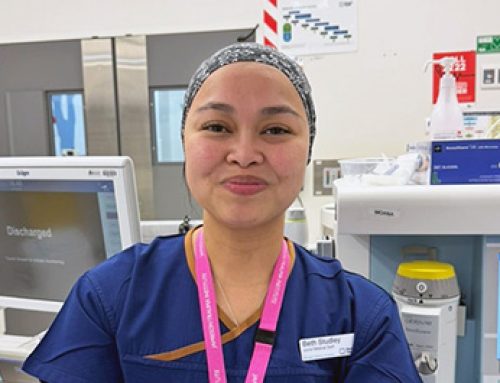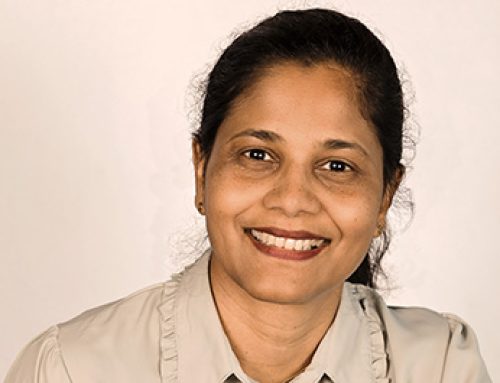Advancing health services: Key insights from AusHSI’s inaugural implementation science colloquium
The Australian Centre for Health Services Innovation (AusHSI) recently hosted its inaugural Implementation Science in the Real World Colloquium, running from 27-28 August, 2024. The event attracted approximately 150 attendees, including government service providers, patient group representatives, and distinguished academics from both Australia and abroad.
Headlined by world-leading experts Professor Gregory Aarons and Professor Trish Greenhalgh, the Colloquium presented the latest research and evidence on how health services can better implement, measure, and sustain change. The event featured panel sessions and case studies that explored the practical application of implementation strategies.
Emphasising inclusivity and long-term engagement
Key themes that emerged from the conference emphasised the need for inclusivity in applying research—meeting people where they are—and the importance of authentic, long-term engagement to ensure sustained change.
This focus on inclusivity resonated with Professor Trish Greenhalgh’s keynote presentation, which highlighted the importance of framing issues effectively for project success. She also stressed the need for policy language to adopt ‘humanising terms’ that consider diverse stakeholder perspectives and the broader sociological context. Participants particularly appreciated that Professor Greenhalgh addressed the significance of learning from failures as well as successes.
A deep understanding of the importance of people and communities working together to implement and sustain change is why AusHSI placed consumer voices front and centre in the Colloquium. Consumers, First Nations researchers and CALD community representatives presented and co-facilitated sessions on ‘Co-Design and Participatory Research’ and ‘Authentic Engagement with Consumers and Communities’.
Professor Gregory Aarons discussed the application of the EPIS Implementation Framework, emphasising the importance of interacting with multiple levels of health systems to bring about and sustain changes in policy. He underscored the need for continuous reflection, revisiting aspects overlooked during the planning stages of projects, and incorporating them iteratively into the process.

BACK L-R A/Prof Zephanie Tyack, Prof Gregory Aarons, Prof Steven McPhail, Dr Fiona Russo, Prof Gill Harvey, Prof Samantha Keogh, Deb Knoche, Dr Michelle Allen, Prof Trish Greenhalgh. FRONT Dr Andrew Goodman, A/Prof Joanna Moullin, Dr Bridget Abell, Donata Sackey.

L-R Prof Gill Harvey, Prof Gregory Aarons, Prof Trish Greenhalgh
The importance of implementation science in real world health services
Delegate, Angela Carberry, Research Fellow, Sunshine Coast Health Institute commented:
“As an academic in a Hospital and Health Service, the focus on ‘Implementation Science in the Real World’ was the most appealing part of the Colloquium. The key insight for me is that evidence alone isn’t enough—implementation is just as important. It’s reassuring to see strategies and theories emerging to support proper implementation science, an area still not fully understood in health services. Bridging the gap between academia and real world health services requires a different mindset and it’s great to see this being acknowledged.”

BACK L-R Megan Campbell, Dr Katrina Campbell, Thomasina Donovan, A/Prof Zephanie Tyack, Dr Bridget Abell, Prof Gill Harvey, A/Prof Ingrid Hickman. FRONT L-R Dr Sundresan Naicker, Prof Steven McPhail, Prof Trish Greenhalgh, Prof Gregory Aarons.
Megan Campbell, Operations Director at QUT’s Australian Centre for Health Services Innovation, commented:
“Implementation science is critically important in health services because it bridges the gap between research and practice. Despite significant advancements in medical research and the development of effective interventions, many innovations fail to be widely adopted or are implemented inconsistently. This gap often leads to suboptimal patient outcomes and inefficient use of resources.
Amid complex challenges like rising costs, an aging population, workforce shortages, chronic diseases, and healthcare disparities, implementation science can help health services meet population needs more effectively and sustainably.
This is why we hosted the inaugural conference: to build capacity across the sector by sharing and developing our collective knowledge and showcasing the latest advancements in the field.”
Building clinician capability and leveraging policy for improved health outcomes
Associate Professor Zephanie Tyack at QUT’s Australian Centre for Health Services Innovation said:
“Key messages from the Colloquium included the need to build the capacity of clinicians in implementation science and to leverage policy as a driver for improving population health. Additionally, a recurring theme across many presentations was the importance of continuously learning from both successes and failures.
A personal highlight for me was discussing with Professor Greg Aarons and Professor Trish Greenhalgh how they effectively bring together teams to tackle complex health issues confronting our health systems.”
The conference was led by AusHSI’s Implementation Science Team which includes Associate Professor Zephanie Tyack, Dr. Bridget Abell, Dr. Michelle Allen, Dr. Sundresan Naicker, Dr Jessica Killey and Dr. Eloise Hummell. Visit the ISRW24 event website to learn more about our guest speakers.
For more information please contact AusHSI:
Email us: Contact@AusHSI.org.au
Call us: +61 (0)7 3138 6427

ISRW24 Day 2, Session 2 panel with Dr Bridget Abell, Dr Kym Warhurst, Prof Jed Duff, A/Prof Ingrid Hickman, Prof Gregory Aarons, moderated by Megan Campbell.

The AusHSI team








